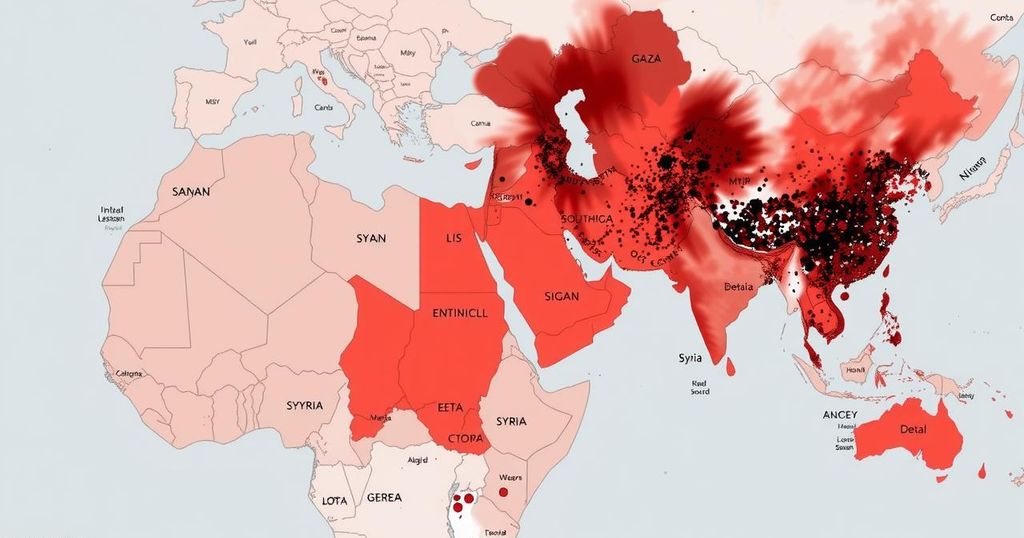The UN highlights escalating communal violence in South Sudan alongside urgent humanitarian efforts in Syria and Gaza. UNMISS reports increasing casualties due to conflict and calls for accountability in South Sudan, while the WHO executes major medical supply deliveries in Syria. In Gaza, child fatalities from hypothermia emphasize the need for humanitarian assistance amidst ongoing violence and restricted access to healthcare.
The UN peacekeeping mission in South Sudan (UNMISS) has reported an alarming rise in communal violence, abductions, and sexual assaults occurring between July and September of the previous year. According to UNMISS, 299 non-combatants were murdered, 310 injured, and 151 abducted during this period, with the majority of violence concentrated in Warrap and Central Equatoria states. UNMISS head Nicholas Haysom condemned this escalation and called upon local authorities to address underlying conflicts and ensure accountability for human rights abuses through investigations.
In Syria, the WHO has commenced its humanitarian efforts for 2025 by delivering over 32 tons of essential medical supplies to Damascus, aimed at supporting the urgent health needs of 300,000 individuals. The WHO’s continuous assistance includes previous flights carrying crucial supplies, such as dialysis kits and medicines. In response to worsening conditions in Syria, UN agencies are actively training paramedics and facilitating food distribution, with the hope of aiding over 3,600 families monthly.
In Gaza, a tragic report surfaced regarding an infant who perished due to hypothermia, marking the eighth preventable child death caused by exposure to extreme cold. Attacks on civilian infrastructure were highlighted, with UN-run facilities being caught in shelling incidents. The World Health Organization has raised concerns about healthcare accessibility, as the Kamal Adwan Hospital remains non-operational following the detention of its director, and humanitarian aid is impeded in northern Gaza due to restrictions from Israeli authorities.
The ongoing humanitarian crises in South Sudan, Syria, and Gaza underline the urgency for intervention and sustained international support to alleviate suffering and promote peace in these volatile regions.
The article presents an overview of the humanitarian crises currently affecting South Sudan, Syria, and Gaza. In South Sudan, persistent communal violence poses severe threats to civilian safety, leading to significant casualties and human rights abuses. The UN peacekeeping mission is actively monitoring this situation, emphasizing the need for community-driven resolutions. In Syria, the WHO’s latest humanitarian efforts aim to address immediate medical needs amidst ongoing conflict and instability, compounded by logistical challenges. Lastly, Gaza faces dire humanitarian conditions, exacerbated by cold weather and ongoing violence, impacting vulnerable populations, particularly infants. These regions are under acute stress, necessitating international attention and action.
The dire situations reported in South Sudan, Syria, and Gaza underscore the pressing need for humanitarian aid and protection for civilians. In South Sudan, rising violence demands local conflict resolution and accountability for human rights violations. Syria requires consistent medical supply efforts to meet urgent needs of its affected population. Meanwhile, Gaza witnesses preventable tragedies due to environmental and conflict-related factors, highlighting the necessity for increased humanitarian access and protection. Collaborative international responses are imperative to address these crises effectively.
Original Source: news.un.org






